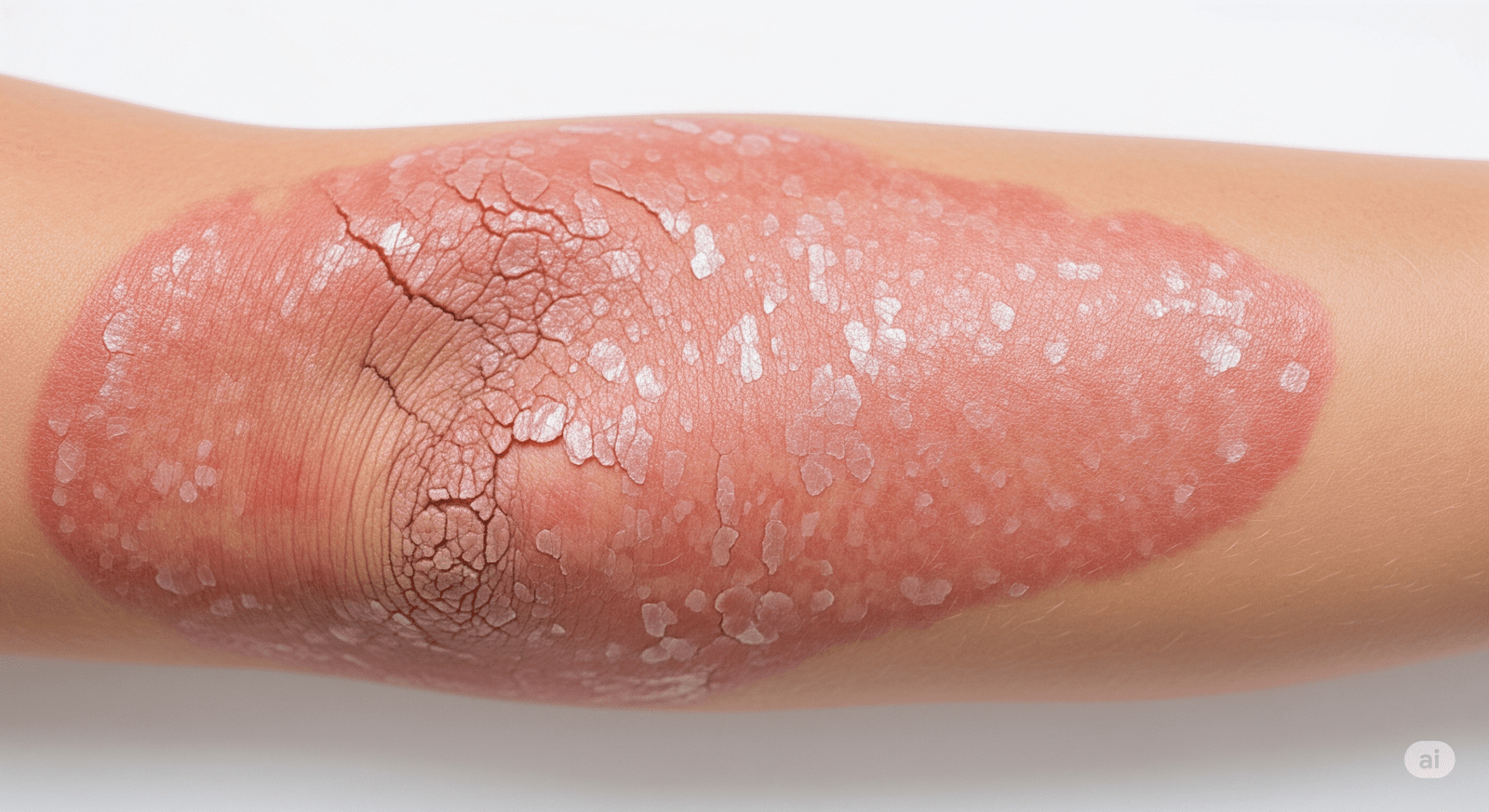
Introduction
Psoriasis is a chronic autoimmune skin condition that speeds up the growth cycle of skin cells, causing patches of thick, red skin with silvery scales. It affects people of all ages and can significantly impact one’s quality of life.
What is Psoriasis?
Psoriasis occurs when the immune system triggers an overproduction of skin cells. This buildup results in raised plaques that can appear anywhere on the body, commonly affecting the scalp, elbows, and knees.
Common Causes of Psoriasis
- Genetics: A family history of psoriasis increases the likelihood of developing the condition.
- Immune System Issues: Psoriasis is caused by the immune system attacking healthy skin cells by mistake.
- Environmental Triggers: Stress, infections, and certain medications can trigger flare-ups.
Symptoms of Psoriasis
- Red, inflamed skin covered with silvery-white scales
- Itching or burning sensations
- Cracked, dry skin that may bleed
- Thickened or ridged nails
Treatment Options
- Topical Treatments: Steroid creams, vitamin D analogs, and moisturizers can relieve symptoms.
- Light Therapy: Controlled exposure to ultraviolet light can reduce scaling and inflammation.
- Systemic Medications: For severe cases, drugs that target the immune system can help control the condition.
Conclusion
While there is no cure for psoriasis, managing triggers and adhering to treatment plans can help control symptoms. Working with a healthcare professional is key to finding the most effective treatments.
